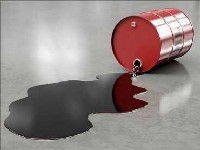 | « Back to article | Print this article |
Jolted by Germany's refusal to route its payments to Iran, India is exploring using Dubai or Turkey based banks as conduit for paying for crude oil it imports from the Persian Gulf nation. "We are exploring if Indian oil firms can open accounts in banks like Dubai-based Noor Islamic Bank so they can undertake a direct transfer of money for oil they buy from Iran," a senior government official said.
"We are exploring if Indian oil firms can open accounts in banks like Dubai-based Noor Islamic Bank so they can undertake a direct transfer of money for oil they buy from Iran," a senior government official said.
Under the scheme being discussed, state-run National Iranian Oil Co (NIOC) too will open an account in a UAE or Turkey based bank to receive direct money transfer from oil companies.
"The mode of payment will be Euro," he said. "We have forwarded a list of banks to Iran... they have to choose the bank where both Indian firms and NIOC can open account."
Indian firms opening account in the UAE or Turkey bank will however be subject to Reserve Bank of India nod.
Last month, Germany under US pressure stopped accepting money from India for onward transfer to an Iranian-owned, Hamburg-based bank, towards payments for the import of crude.
India in February had begun clearing past dues for Iranian oil imports by making euro payments through German-based Europisch-Iranische Handelsbank AG (EIH Bank).
But EIH, which is owned by Iran, is a banned entity in the US and Washington persuaded Germany to stop payments.
About euro 1.5 billion had been paid through EIH when Germany refused to accept any further payments.
This has resulted in outstanding of $ 2.8 billion as on March end towards Iran, which has continued to supply oil on credit.
The problem began after RBI in late December last year scrapped a long-standing payment mechanism used to pay for Iranian crude oil imports, which make up for 12 per cent of the nation's oil needs.
In February, the two nation's decided to route payments through EIH and Oil Minister S. Jaipal Reddy in early March made a statement to Parliament saying "pending dues of NIOC are now being cleared and as of March 1, 2011, payment of euro 1.5 billion has been made to the Central Bank of Iran".
But that was the last payment made to Iran as, soon after the news broke out, the US told Germany of the sanction conditionalities against the gulf nation for its nuclear policy.
Oil supplies from Iran have, however, not been affected and the Persian Gulf nation continues to sell oil on credit backed by corporate guarantee.
"We are considering various alternatives... making payments in rupee is one of them," the official said.
Reddy on March 3 stated in the Lok Sabha that "consequent to the withdrawal of the Asian Clearing Union (ACU) mechanism by the RBI with effect from December 23, 2010, all payments to Iran for import of crude oil have to be settled in any permitted currency outside the ACU mechanism."
India imports 12 million barrels of crude oil every month from Iran, which is the nation's second-largest supplier after Saudi Arabia.
The official said 21.2 million tonnes of crude oil was imported from Iran in 2009-10 fiscal.
These imports were undertaken by Mangalore Refinery (6.9 million tonnes) Essar Oil (5.3 million tonnes) Reliance (3.3 million tonnes) Hindustan Petroleum (3.2 million tonnes) and Indian Oil (2.5 million tonnes).
In 2010-11, Reliance completely stopped using Iranian oil and in first six months a total of 8.9 million tonnes of oil was imported from Iran, Reddy said.
Sources said as per the requirement of the German central bank, Deutsche Bundesbank (DBB) - which had permitted payment in euros through EIH - the entire oil bought from US-sanctioned Iran was certified.
First, the oil companies certified the crude oil they bought from Iran and payments that are due.
This is being counter-certified by the petroleum ministry. Furthermore, State Bank of India - the banker which was routing the payments - also affixed its seal on the transactions.
But the US is not agreeable to payments going through EIH and asked Germany to stop all such payments.